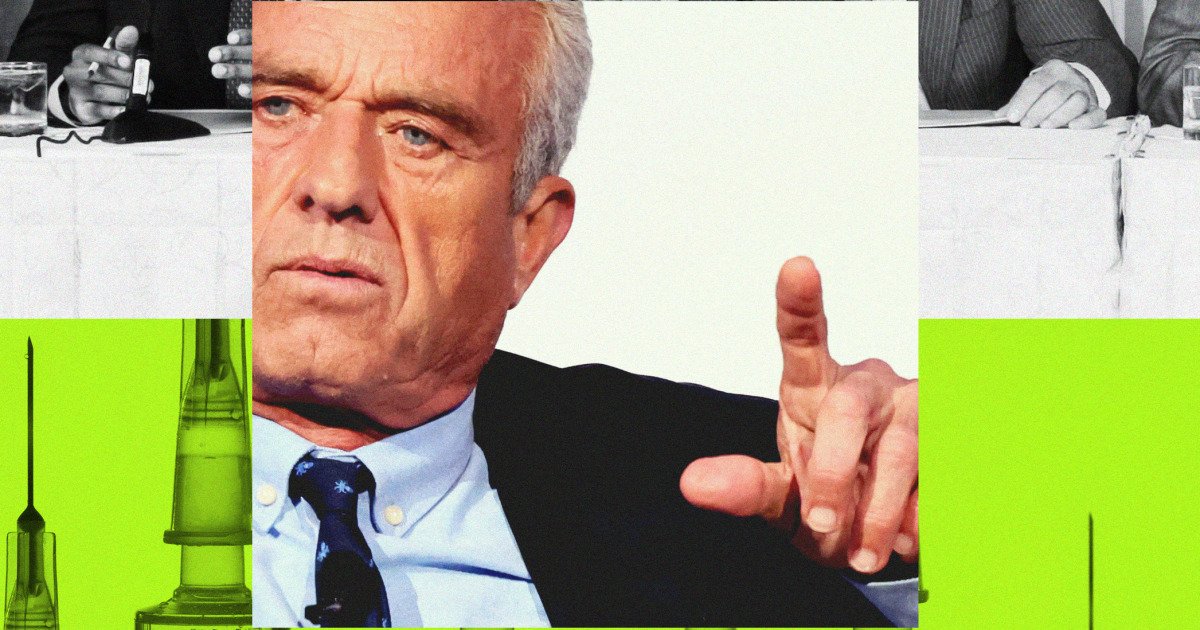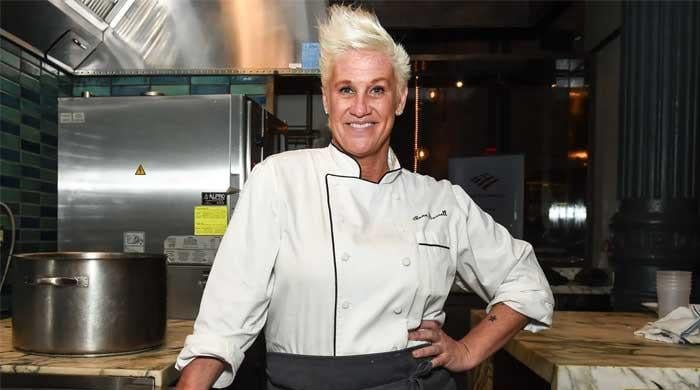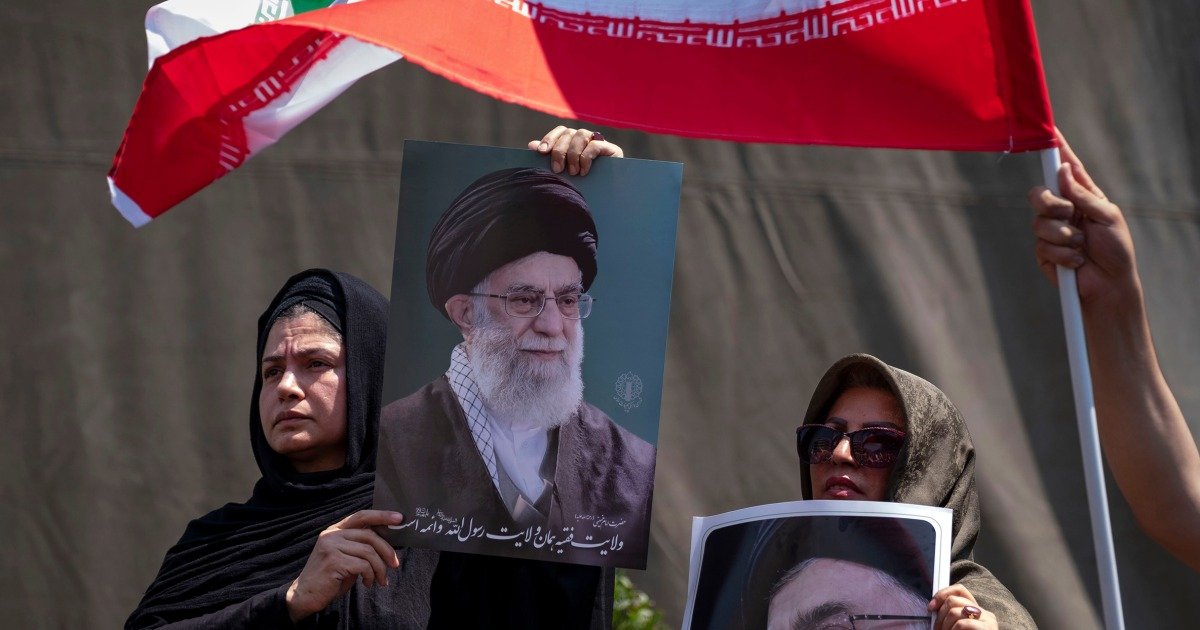Health and Human Services Secretary Robert F. Kennedy Jr.’s unprecedented shake-up of a key federal vaccine advisory panel ushered in appointees who have expressed skepticism about the value and safety of vaccines — raising concerns about the group’s objectivity.
The eight new members Kennedy appointed to the Advisory Committee on Immunization Practices (ACIP), which makes recommendations to the Centers for Disease Control and Prevention about who should get certain vaccines, include three people who have testified as expert witnesses against vaccine makers, NBC News found in a review of the members’ professional backgrounds.
One of the new members has published articles questioning the safety of Covid vaccines and received thousands of dollars from a libertarian think tank that opposed pandemic-era restrictions. A few have promoted misinformation about vaccines and public health.
The group’s first meeting, scheduled for June 25-27, is set to include votes on recommendations for Covid, HPV, influenza, meningococcal and RSV vaccines.
Kennedy billed his firing of the entire 17-member panel as a way to restore public trust in vaccines and eliminate conflicts of interest, but three health policy experts said his new slate brings fewer qualifications and more anti-vaccine views compared with the previous one.
“This is an attempt to replace one of the most powerful and important vaccine advisory groups in perhaps the world with folks who are anti-vaccine,” said Matt Motta, an assistant professor of health law and policy at Boston University’s School of Public Health.
Motta said he is concerned that the group, as it stands, would choose not to recommend future lifesaving mRNA vaccines even if the data supported it. Most of the members, he said, “are folks who may have scientific credentials, but they are at the fringes of their field.”
As founder of the country’s largest anti-vaccine nonprofit group, Children’s Health Defense, Kennedy’s skeptical views about vaccines are well-documented. As health and human services secretary, he has downplayed the importance of the measles vaccine amid a major outbreak, instead touting unproven treatments like cod liver oil and an inhaled steroid. Under his leadership, the CDC also stopped recommending Covid vaccines for healthy children, and the Food and Drug Administration has said it will limit the approval of updated Covid shots to older adults and younger people with underlying medical conditions.
Department of Health and Human Services spokesperson Andrew Nixon said in a statement that the new panel “includes highly credentialed scientists, leading public-health experts, and some of America’s most accomplished physicians. All of these individuals are committed to evidence-based medicine, gold-standard science, and common sense.”
While the group includes some doctors, epidemiologists and medical researchers, an NBC News review found many lack specific expertise in vaccine science or policy.
“I see way more conflict with Kennedy and with the new appointees than I do anything even remotely close with the old group,” said Arthur Caplan, head of the medical ethics division at NYU Langone Medical Center.
Several new members have been outspoken critics of vaccines for years. During the pandemic, physician and scientist Robert Malone, who was involved in some early research into mRNA technology, spread false allegations of widespread dangers and deaths from the Covid vaccines, leading Twitter to suspend his account. Most recently, Malone published misinformation about the Texas measles outbreak, suggesting that measles-mumps-rubella vaccines, which the federal government has approved for decades, might be to blame and saying the vaccines carry “similar risks as the wild measles virus,” which is untrue.
Malone’s advocacy has led to speaking engagements, a Substack newsletter with more than 350,000 followers — some paying $6 a month — and a private consulting business that charges $500 for 15-minute “health and wellness” consultations.
He has also been an expert witness in multiple vaccine-related lawsuits, including a case in which he testified that Merck misrepresented trial data and lacked evidence that its mumps vaccines provided protection. A judge found in favor of Merck, and the opinion was upheld on appeal. In addition, Malone testified in challenges by service members fighting Covid vaccination requirements, in which he said all the available Covid vaccines were “experimental medical products” and therefore not FDA-approved. Both of those cases were dismissed after the Defense Department rescinded its vaccination mandate. Court filings show he charged $350 an hour in one case.
“I have no bias against Merck,” Malone said by email, referring additional questions to HHS.
An HHS spokesperson said Malone’s “role as an expert witness in these cases reflects the appropriate application of his scientific expertise in legal and regulatory settings: an entirely standard practice for subject matter experts in modern medicine. Similarly, his work in the biotech industry, published writings, and consulting engagements reflect both professional credibility and a commitment to public dialogue.”
Another new appointee to ACIP, Vicky Pebsworth, has worked for anti-vaccine groups for about 20 years. Pebsworth, a registered nurse with a doctorate in public health and nursing from the University of Michigan, is a board member and the volunteer director of research and public safety for the National Vaccine Information Center, which researchers consider a leading source of misinformation about vaccines. She has been a consumer representative on several federal vaccine panels and working groups.
In bios and conference speeches, Pebsworth says her activism was sparked by her only child’s autism diagnosis, which she attributes to vaccines he received at his 15-month well-baby visit. She became a prominent voice for the debunked claim that thimerosal — a preservative removed from childhood vaccines in 2001 — triggers conditions like autism.
She also was an expert witness in a failed federal lawsuit brought by activists who sought to outlaw childhood vaccination mandates, claiming they prevented meaningful safety comparisons between vaccinated and unvaccinated children — a view espoused by Kennedy. A judge dismissed the case in 2021 for lack of standing.
In a public comment letter to the FDA in May, Pebsworth wrote that regulators “should not make vaccine use recommendations for anyone” about Covid shots. She did not respond to requests for comment.
Dr. Walter Orenstein, who directed the CDC’s National Immunization Program from 1988 to 2004, reviewed the list of the eight appointees and said he is aware of only one — Dr. Cody Meissner, a Dartmouth University professor of pediatrics and a previous ACIP member — who has relevant expertise.
“I’m not aware of qualifications for any of the other people that would normally be used in selecting” ACIP members, said Orenstein, who is now a professor emeritus of infectious diseases at Emory University School of Medicine. The committee typically looks for people with backgrounds in vaccine research or policy, he said, who publish frequently in respected scientific journals. Many of those experts should be physicians who see patients and are familiar with the infectious diseases that vaccines are designed to prevent, he added.
Historically, ACIP membership follows a yearslong vetting process in which nominees are screened for conflicts of interest. Experts who are employed by vaccine manufacturers, own significant stock in vaccine companies or hold patents on vaccine products or vaccine-related technology generally cannot serve on the committee, per ACIP policy. To become members, experts must also agree to give up any advisory or consulting roles for vaccine manufacturers, except for roles in clinical trials or on data monitoring boards.
Once appointed, members file annual financial reports with the Office of Government Ethics and must disclose any vaccine-related activities before every meeting. When conflicts do arise — which happens, given that vaccine expertise often comes with professional ties to manufacturers — CDC waivers may allow members to join discussions while barring them from voting on the matters.
Past members have received grants from manufacturers for trials or had previous work experience with pharmaceutical companies. Out of 17 voting members last year, only two declared conflicts that prevented them from voting at a meeting, according to the CDC’s website.
Contrary to Kennedy’s claim that the previous ACIP members were not properly vetted for conflicts, “there are many steps and many safeguards, and they’re serious about it,” Caplan said. “Some people have complained over the years who were turned down that the screening for conflict of interest is too strict. No one has ever said it’s not strict enough.”
It is unclear what vetting process went into selecting the eight replacements for ACIP, though Nixon told NBC News last week that the review was thorough.
Another ACIP appointee, Martin Kulldorff, a biostatistician, is one of three co-authors of the Great Barrington Declaration, a widely criticized memo that decried pandemic-era lockdowns and advocated for letting people at minimal risk of dying get exposed to Covid. Kulldorff, who did not respond to requests for comment, says he was fired from Harvard for refusing to get a Covid vaccination. He is senior scientific director at the Brownstone Institute, a libertarian think tank that paid him $108,333 in 2022 and publishes his articles criticizing public health measures.
In a deposition last year, Kulldorff estimated that he earned $49,000 as a $400-an-hour expert for plaintiffs who claimed Merck’s Gardasil vaccine, which protects against HPV, caused injuries. In a written report, Kulldorff criticized what he said were flaws in the company’s safety analyses. The lawsuit was dismissed in favor of Merck, which denied the claims.
The new ACIP member with the strongest industry connections is Dr. Michael Ross, an obstetrician-gynecologist, who earns a living on the investment side of health care. Ross is listed on the company website as an operating partner at Havencrest Capital Management, a Dallas private-equity fund that has raised roughly $600 million and has invested in clinical trials of vaccines and autism services.
Ross’ LinkedIn account lists board or advisory seats at a half-dozen biotech startups and a previous role as CEO of the contact lens maker Euclid Systems Corp. During the pandemic, he co-signed an open letter criticizing a study that found no benefit from ivermectin, an antiparasitic drug that became a cause célèbre among Covid deniers despite a lack of evidence of its efficacy. Ross declined requests for comment.
Kennedy’s other ACIP picks do not have the same clear industry or advocacy ties.
MIT operations management professor Retsef Levi posted a viral video in 2023 that urged an “immediate suspension” of mRNA shots and co-authored two papers linking Covid vaccines to negative health effects and “significantly higher risk” of death, despite a mountain of evidence to the contrary; one was not peer-reviewed, and the other had multiple corrections. Meissner, the Dartmouth professor, signed the Great Barrington Declaration and has questioned Covid vaccinations for healthy children. Retired California emergency physician James Pagano does not have any published vaccine research and has shared incendiary views online about Islam. And Dr. Joseph Hibbeln is a longtime nutrition scientist and seafood industry adviser without apparent vaccine expertise.
Hibbeln said by email that he has “no conflicts of interest of any kind” and has “received no funds or anything else that may be considered a conflict of interest.” Levi referred NBC News’ inquiry to HHS spokesperson Emily Hilliard, who said that his “expertise in decision science, risk-benefit tradeoffs, and data integrity is highly relevant to the work of ACIP” and that “any attempt to reduce his qualifications ignores the breadth and substance of his contributions to public health and safety.” Meissner and Pagano did not respond to requests for comment.
Health policy experts said they are hopeful the new ACIP members will disclose their conflicts before meetings and recuse themselves from voting when appropriate. But they shared reservations about whether the standard ACIP policies will be enforced under Kennedy’s leadership, given his own anti-vaccine sentiments and decision to fire qualified ACIP members.
“Ultimately, the person who’s going to hold those individuals accountable for reporting conflicts of interest is Secretary Kennedy,” said Motta of Boston University.
#RFK #Jr.s #vaccine #advisory #panel #sparks #concerns #antivaccine #bias



